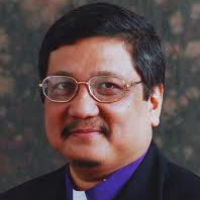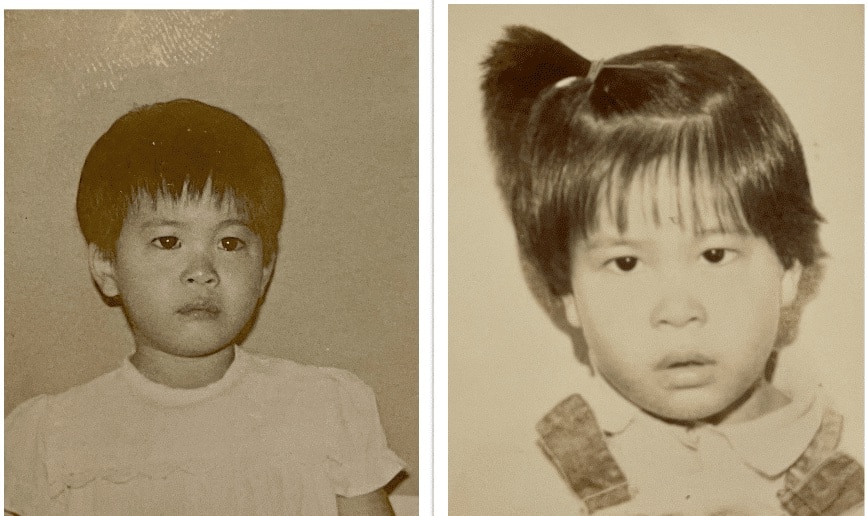Salt&Light Word in Season: Bishop Emeritus Robert Solomon on maintaining our mental health
Word in Season is a monthly series of original Bible devotions from leaders in God's Kingdom. This month we look at mental health as we remember World Mental Health Day (October 10).
Bishop Emeritus Dr Robert Solomon // October 20, 2023, 11:33 am

Photo by Alonso Reyes on Unsplash.
One of the effects of the Covid pandemic is a greater awareness of mental health challenges.
The fear of infection and possible death, the loss of regular contacts with others, the sense of loneliness and despair, all contributed to the rise of mental unease or disease.
Now that the pandemic has been downgraded to endemic level, things have improved but the challenges to mental well-being remain.
The world we live in has become more uncertain and challenging, with threats of war, rising inflation and economic chaos, serious climate changes and dizzying social change. Authorities are addressing the issue by putting more resources to help the population.
How are we, as Christians, to view these in the context of our faith?
Managing challenges
The words “health”, “wholeness” and “holiness” all have similar roots in the old European languages.
It is helpful to see that these are closely connected. Wholeness suggests that we suffer dysfunction when our lives are unhelpfully compartmentalised and fragmented. Thus, people talk about the need to find work-life balance. Or the need to function with our heads, hearts and hands all working together in unison.
This human need to find wholeness is expressed in the psalmist’s prayer for an “undivided heart” (Psalm 86:11). God has promised to answer this prayer by putting a new spirit in us and giving us a new heart (Ezekiel 11:19).
In the Bible, the heart is the operating centre within us, responsible for our thoughts, emotions and will. In human beings, these are often broken and dysfunctional. It is the Holy Spirit who brings us healing in Christ as we are made to experience wholeness when we turn to Christ in faith and repentance.
Mental illness has to do with disturbance in thoughts, emotions, moods and behaviour. These range from anxiety disorders to more severe forms of psychosis. Medicine helps to some extent, but it is often not the main or only solution.
God has made us for relating with Him and others, without which we suffer unease and dysfunction. The Lord Jesus summarised the entire law and prophets as the need to love God wholeheartedly and our neighbours as ourselves (Matthew 22:37-40).
If we get this right, we would be able to function better.
Precious resources for believers
But being a Christian does not always mean that we can live free from mental illness.
This is because, on this side of eternity, we continue to battle within ourselves in a conflict between what Paul says are the flesh and spirit (Galatians 5:16-18).
There are often stubborn, sinful habits, ways of thinking and unredeemed attitudes that are at war within us as we seek to grow in Christ.
The Bible promises growing freedom for us in this battle – in God’s truth (John 8:32), God’s Son (John 8:36), and by God’s Spirit (2 Corinthians 3:17).
These are spiritual resources available to believers as they read the Bible and internalise its truths, as they seek to live in Christ, trusting and obeying Him, having received His forgiveness, and as they look to the Holy Spirit, through prayer, to untie some of the internal knots in their personalities and to bring healing within from past hurts and stubborn memories.
This can be further explored through Christian counselling and spiritual direction, where those skilled in helping people to discern what God is doing in them can show the way forward by cooperating with God.
This can result in better mental and emotional functioning and better and more satisfying relationships.
Another important dimension is Christian community.
Alone, most of us will wilt spiritually and emotionally. But when God places us in a Christian community (local church, small group), we will find encouragement. It is in relating redemptively with others that we can sense God’s presence and power.
After Jesus had healed the demoniac who lived alone in the cemetery, he was restored to be in “his right mind” (Mark 5:15). Jesus told him to go home to his family to tell them his experience (Mark 5:19). The writer of Hebrews also urged his readers to meet together regularly to encourage and spur one another (Hebrew 10:24-25).
Along with these spiritual resources (Bible reading and prayer, abiding in Christ, empowerment in the Spirit, Christian community), we can develop personal habits such as eating good healthy meals, exercising regularly, finding adequate rest and sleep, as well as space for personal reflection and healthy relationships.
Trouble in this world, but peace in Him
Notable Christians such as William Cowper, Charles Spurgeon and others suffered lifelong bouts of depression, and yet persevered in their faith and the spiritual resources available to Christians.
Loss of mental wellness might be due to our inner struggles, the attacks of the devil and also the dysfunctional world in which we live.
Jesus said that we will have much trouble in this world, but we can have peace in Him. We have two locations mentioned here – in this world and in Christ. When we live in Christ, we can have peace because He has overcome the world.
Others who do not know about this other world (in Christ) will have difficulty understanding how we can have peace and poise in the kind of world we share with them. We know the secret and must share with them our secret.
RELATED STORIES:
Heartbreaking number seek help for kids with depression: Salt&Light Family Night
We are an independent, non-profit organisation that relies on the generosity of our readers, such as yourself, to continue serving the kingdom. Every dollar donated goes directly back into our editorial coverage.
Would you consider partnering with us in our kingdom work by supporting us financially, either as a one-off donation, or a recurring pledge?
Support Salt&Light




